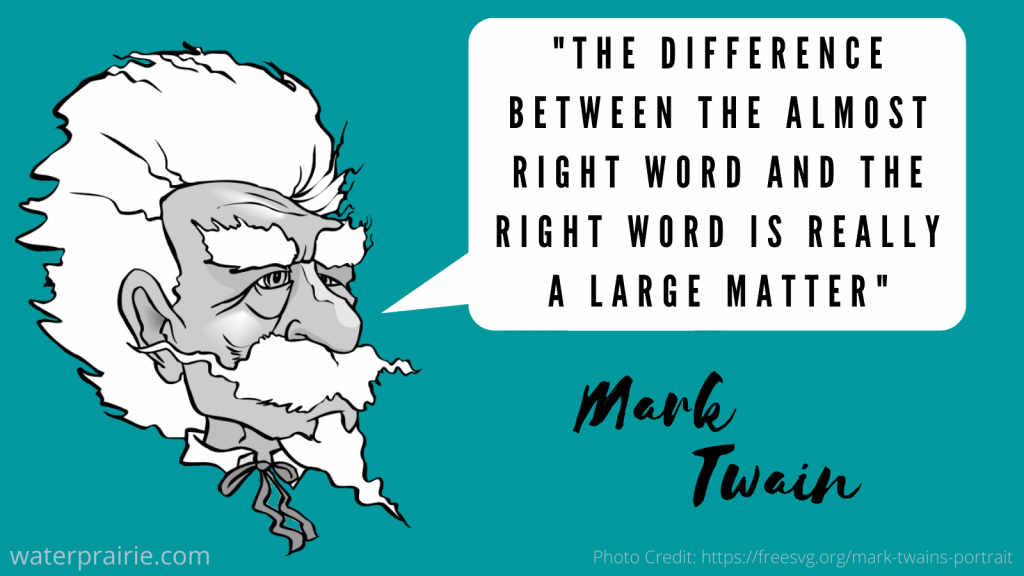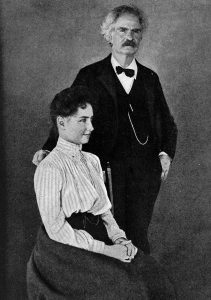Do Words Matter?
Reflections on the use of “person first language”

“The difference between the almost right word and the right word is really a large matter – ’tis the difference between the lightning-bug and the lightning.” Mark Twain
In today’s world, we’re often unsure if certain words we use actually convey the message we intend for them to convey. If you’re on social media, you probably have seen how the use of words can cause different reactions from different people. A close friend who has always seen eye-to-eye with you can suddenly seem like a stranger because of a reaction to a social media post. A stranger can become a new best friend for the same reason. It’s crazy when I look at what is posted online for the world to read, and I often wonder if some of those posts are regretted after they are posted.
Hopefully this post will be received with the same love it is being written with, but please post your questions in the comments or send me a private message if anything I write here seems wrong to you.
When I first began researching terminology to use for Water Prairie’s mission and vision, I found the phrase, “Special Needs,” was the usual way to refer to someone with a disability. Especially if you’re referring to a child with a physical, emotional, or intellectual disability. I’ve put that as a tag in many of the social media posts I’ve posted so far, and I’ve wondered how others have viewed it. It doesn’t feel right to me, but I’m trying to use terms that people are searching for online and decided to use it for now.
What is “Person First Language?”
My daughter, Emily, and I have had many discussions about how to refer to someone with a disability. In our family, we have three out of four of us with “special needs” of some sort, but none of us consider ourselves disabled. The disabilities we face are just a part of who we are, and sometimes it’s important to acknowledge the needs we may have. A few years ago, there was a movement to begin using “person first” language in reference to someone with a disability. In other words, instead of saying someone is a visually impaired person, you would say they are a person with a visual impairment. The word order implies they are a person first and have a disability second, and it sounds like it would be a good thing. However, it may be that the word order makes those who aren’t disabled feel better instead of serving the needs of those with the disability.
What do you prefer?
Before you start reacting in a negative manner, hear me out. If you have a disability, what do you prefer? Would you rather ignore the disability or just go ahead and put it out there that it’s just a part of who you are? Since Emily is visually impaired, I asked what she would rather have. She said she’s actually taken a poll of some of her friends, and they had a mixed reaction. Some would rather just say they’re a blind student or a deaf dancer. Others would rather use the “person first” language and say they are a student who is blind or a dancer who is deaf. The bottom line is that no matter what way you say it, don’t look at someone as disabled as their primary life description!
For parents of a child with a disability, you may spend more time dealing with the disability than anything else, but you’re still parenting a child. That’s the primary job you have. No matter how many doctor appointments, medication refills, or emotional meltdowns you may have to deal with, you still want to help raise your child to become the best man or woman they can be. You still need to say “no” to them when they ask for things they shouldn’t have and need to teach them the skills they’ll need as they grow up. You still need to find the time to play, read stories together, and give emotional support so they grow up feeling secure and loved.
Did Twain Have Special Needs?
I was curious about the opening quote I used from Mark Twain and looked a little more into his life. Mark Twain was the name he wrote under, but his real name was Samuel Langhorne Clemens. Samuel was born two months premature in 1835 and was described as sick and frail for the first seven years of his life. I can imagine he would have been delayed in some of his early skills during that time, and his parents wouldn’t have had agencies or doctors to help them figure out how to help him. Thankfully they were able to guide him, and he became the famous writer we know now (history.com).
Did you know Samuel Clemens was friends with Helen Keller? I learned they met when she was a young teenager, and they remained friends for years even though there was a 40 year age gap between them. Clemens admired Keller because she was able to gain her knowledge while being shut away from distractions. He said he might have become something if he could have been unable to hear and see. Helen Keller wrote that she loved Clemens because he “treated me like a competent human being.” It seems they had a mutual respect for each other, and I’m sure neither was concerned whether they described Helen as a “woman who was blind” or Clemens as a “sighted writer” (biography.com)!
For resources to help you get connected with other parents and professionals in your area, check out our Resources page!

